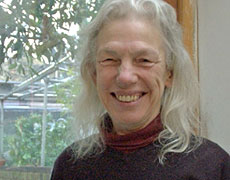As memories of Christmas fade and you are left wondering how to fill the dark nights, there could not be a better time to distract yourself from the winter and to sharpen up your historical skills with the IHR’s exciting programme of research training!
Starting very soon is An Introduction to Oral History, the IHR’s long-running and very popular guide to undertaking historical research by interview. Taught in ten weekly sessions by Dr Anna Davin from the History Workshop, this is a comprehensive outline of how to set about oral history research for those just starting out: it covers both the nuts and bolts of recording methods and more complex questions of ethics, questionnaire composition and how to get the most from respondents. We only have a few places left, so do please hurry with your application.
For historians who want to use non-textual material but don’t know where to begin, our revised and re-vamped Visual Sources for Historians course is the answer. Each week for five weeks we shall explore a different theme: Local/Global; Visualising Britain and the Sea; Material Culture and the Spatial Turn; Historical Subjects; and History and the Media. The full-day sessions will consist of lectures, discussions and visits to museums, galleries and archives such as the Royal Institute of British Architects, the Royal Geographical Society, the Royal Museums, Greenwich and the National Portrait Gallery. Students will learn the questions to ask and the ways to interrogate visual culture in art, cartoons, film and architecture to bring them to bear upon historical analysis.
For those, on the other hand, who want to use the internet as a historical research tool, the one-day Internet for Historical Research workshop will provide you with all the knowledge and skills you require. Covering all aspects of deploying the net as a research tool, and including abundant advice on search strategies, this course will show how to find and use the abundance of primary and secondary source material now available online, as well as teaching how to use the net as a way to promote and archive your own work.
Lastly, starting in March as the weather warms up and hopeful thoughts of spring start to blossom, what could be more appropriate than the IHR’s course Historic Gardens: Research in Action? This is the perfect introduction to how to use archival research in restoring, conserving and managing historic gardens. Taught in eight weekly sessions, the course will be based on a mixture of classroom study and site visits, introducing students to the rich resources for the study of garden history in and around London and serving as an excellent taster for the IHR’s MA in Garden and Landscape History.
Full details of courses and instructions on how to apply can be found at: http://www.history.ac.uk/research-training.

